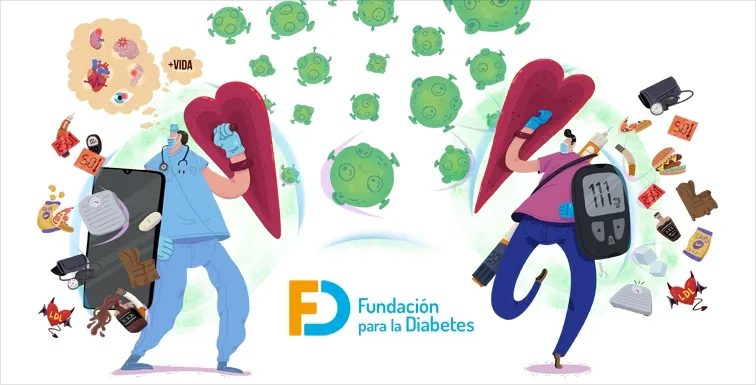Diabetes is a greater risk of more serious ways of infection with the SARS-COV2 virus.
This is stated by an international study published in the Diabetology cardiovascular magazine and in which European research groups in France, the United Kingdom and Spain have participated, led from the Ciberdem area, the research group in Endocrinology, Diabetes and Nutrition of the Institute ofResearch at the Hospital de la Santa Creu I Sant Pau - Iib Sant Pau, and the Endocrinology Service of the Hospital del Mar
According to the study, patients with diabetes and previous macrovascular complications (coronary heart disease, cerebrovascular disease or peripheral arterial disease) entering COVID-19 in a hospital have a worse prognosis and twice as much mortality compared to the general population.
diabetes, a risk factor
To date, the impact of chronic complications associated with diabetes in the forecast of COVID-19 was unknown.
"This work is the first to demonstrate that the presence of macrovascular complications in patients with diabetes entering COVID-19 implies a worst prognosis and twice as a risk of mortality," explains Dídac Mauricio, Cyberdem Group Chief in the IIBSant Pau and study coordinator.
In this sense, the multicentric retrospective study collected cases of various cohorts and analyzed data from a total of 4,106 adults with pre-existing diabetes hospitalized by Covid-19 infection in the United Kingdom, France and Spain during the initial phase of the pandemic (between Marchof 2020 and October 2020).Of these patients, a total of 1,652 (40.2%) had some previous macrovascular disease, placing the percentage of deaths in 28.5%.
Researchers highlight the importance of correctly assessing the prognosis of diabetic patients, as well as intensive monitoring in this high -risk subgroup."In addition, these results highlight the need to design specific public health programs aimed at preventing SARS-COV2 infection in this population, which include for example, among other measures, reinforce vaccination campaigns," the researchers conclude.


